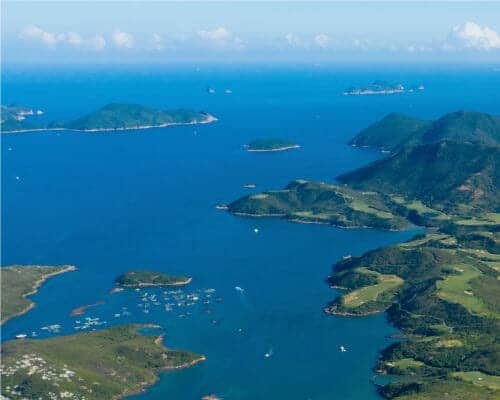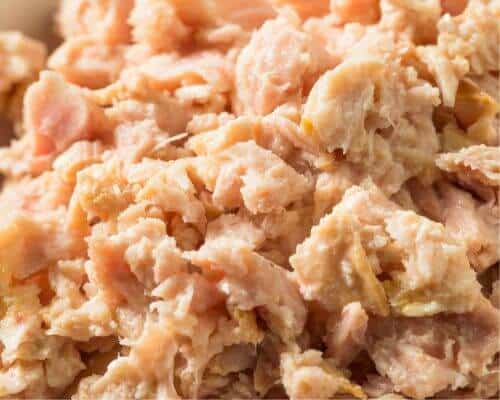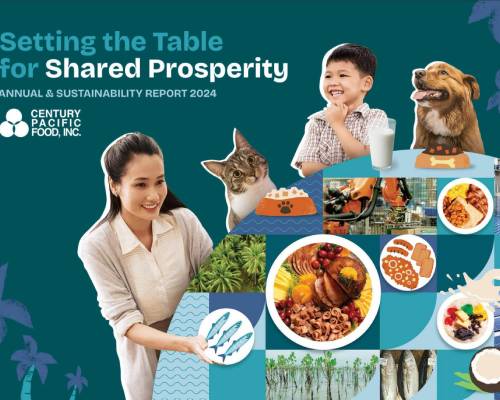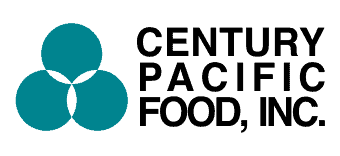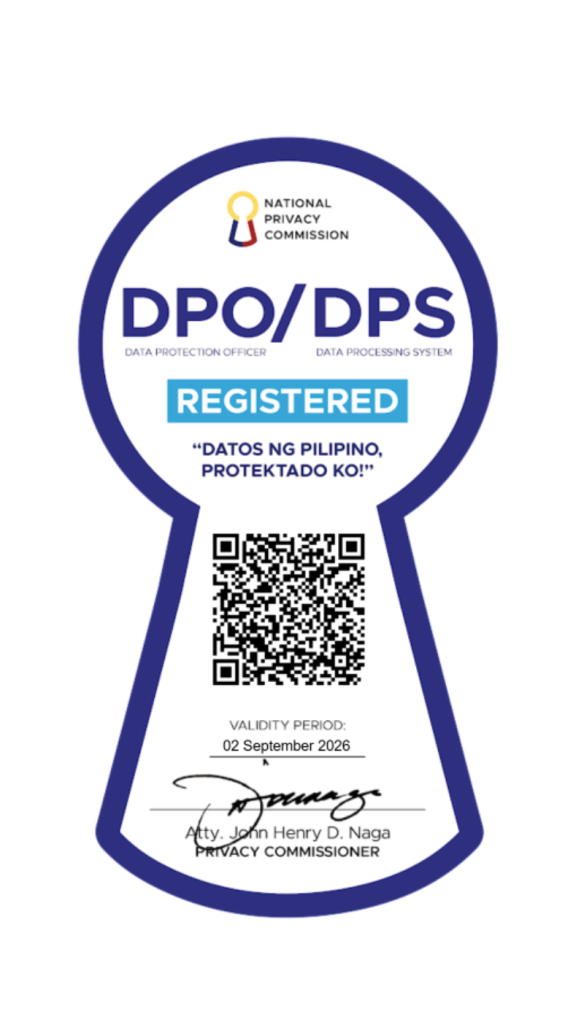PURCHASE ASSESSMENT
TUNA
We diligently comply with international regulations pertaining to conservation measures. As part of our commitment to sustainable sourcing, we are subject to various audits by accredited firms. We also work closely with a number of organizations such as:

Western and Central Pacific Fisheries Commission seeks to address problems in the management of high seas fisheries resulting from unregulated fishing, over capitalization, excessive fleet capacity, vessel re-flagging to escape controls, insufficiently selective gear, unreliable databases and insufficient multilateral cooperation in respect to conservation and management of highly migratory fish stocks.
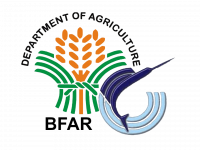
Bureau of Fisheries and Aquatic Resources is the Government Agency responsible for the development, improvement, management and conversation of the Philippines’ fisheries and aquatic resources.
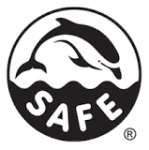
Earth island Institute / Dolphin Safe Tuna
For 25 years, Earth Island Institute has been a hub for grassroots campaigns dedicated to conserving, preserving, and restoring the ecosystems on which our civilization depends.
http://www.earthisland.org
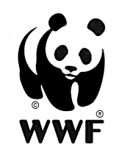
World Wildlife Fund has been protecting the future of nature for 50 years now. The world’s leading conservation organization, WWF works in 100 countries and is supported by 1.2million members in the United States and close to 5million members globally. WWF’s unique way of working combines global reach with a foundation in science, involves action at every level from local to global, and ensures the delivery of innovative solutions that meet the needs of both people and nature.
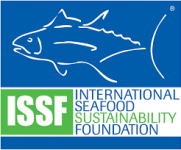
International Seafood Sustainability Foundation started in 2009 and is comprised of leading scientists, the tuna industry, and the World Wildlife Fund. The group promotes science-based initiatives for the long-term conservation and sustainable use of tuna stocks, reduction of by-catch, and promotion of ecosystem health. Today, its industry partners comprise nearly 75% of the world’s canned tuna processing capacity with well-known brands produced and sold in North America, South America, Europe, Africa, Oceania, the Pacific Islands and Asia. Participating companies work with the Foundation to advocate for improved fishery management, fund scientific advancements, and take direct action to encourage the adoption of responsible fishing practices.
Century Pacific Food, Inc., through its wholly-owned subsidiary General Tuna Corporation, is the first among Philippine tuna companies to join the International Seafood Sustainability Foundation (ISSF). The company successfully completed an audit demonstrating its compliance with ISSF conservation measures, which include restrictions on purchase from Illegal, unreported and unregulated fishing and the credible tracing of tuna from capture to plate. All member companies are subject to ongoing inspection to ensure their continued compliance. See our certification here.
http://iss-foundation.org/
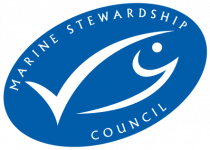
Marine Stewardship Council is an international non-profit organization established to address the problem of unsustainable fishing and safeguard seafood supplies for the future. The MSC works with scientists, fisheries, seafood producers and brands to promote sustainable fishing and safeguard seafood supplies for the future.
https://www.msc.org/

Sedex is a global membership organisation that prides itself on making it simpler to do business that’s good for everyone. It’s home to one of the world’s largest collaborative platforms for sharing responsible sourcing data on supply chains, used by more than 50,000 members in over 150 countries. Tens of thousands of companies use Sedex to manage their performance around labour rights, health & safety, the environment and business ethics.
https://www.sedexglobal.com/
Buying Policy

- Will not source nor transact business with any seafood company and fishing vessels that have been identified or blacklisted for engaging in IUU (Illegal, Unreported, Unregulated) fishing by a Regional Fisheries Management Organization, National Authority and leading Non-Government Organizations.
- Will not transact business with any seafood company and fishing vessels that are not Dolphin Safe accredited
- Commits not to source nor purchase any seafood from proposed marine reserves identified by a Regional Fisheries Management Organization, such as Coral Triangle, Pockets 2, 3 and 4
- Commits not to source nor purchase tuna from fishing companies that use longlines or driftnets
- Will continue to encourage and support the initiative of fishing companies to reduce by-catch such as bigeye tuna, seabirds and turtles through Non-Entangling FAD (Fish Aggregating Device) Free School fishing
- Will continue to encourage fishing companies to have an active online transmitter (Vessel Monitoring System device) and original license on board
- Will continue to encourage fishing companies to support RFMO CMM (Regional Fishery Management Organization Conservation and Management Measures) on catch retention policy to reduce discarding of dead unwanted fish
- We support DOLE DO 156-16 and encourage all fishing companies to comply with the rules and regulations governing the working and living conditions of fishers on board fishing vessels engaged in commercial fishing operations. Thus, we will not engage business with fishing companies who are reportedly involved with labor abuses on fishing boats that do not conform with national and international laws on fair working conditions at seas.DOLE DO 156-16 was developed in compliance with ILO C188.
Read more here. - We support the Conservation and Management Measures (CMM)of RFMOs, in particular Western and Central Pacific Fisheries Commission (WCPFC). WCPFC CMM 2018-05 is about the establishment of the Regional Observer Programme, which itemizes the function of observers, guiding principles, and rights and responsibilities of observers, vessel operators, captain, and crew, among others.
- As a participating company in ISSF (International Seafood Sustainability Foundation), Century Pacific Food, Inc: Adheres and support all conversation measures or programs set by ISSF specially on tuna sustainability. ISSF has been doing a lot of work on tuna sustainability and this is the way the company will proceed moving forward
- Century Pacific Food, Inc. intends to source from 100% sustainable fisheries.
- Our company encourages open communication and receiving feedback among its employees and volunteers. We established a grievance mechanism policy to promote fast and efficient resolution of workplace issues such as suggestion boxes, open communication and call or text communications. This is also to resolve any issues or concerns that they may have at the earliest opportunity with each other. Employees and volunteers should feel comfortable discussing issues with their manager or supervisor in accordance with the procedures outlined Read more here. Find our Grievance Mechanism Policy here.
As a member of Earth Island Institute, Century Pacific Food, Inc. complies with its grassroots campaigns.
- The Dolphin Safe logo is visible on all our accredited tuna product lines.
- Century Pacific Food, Inc. only buys tuna products from Dolphin Safe accredited tuna companies.
- All tuna products of Century Pacific Food, Inc. are Dolphin Safe.
- Century Pacific Food, Inc. denounces the practice of shark finning. Century Pacific Food, Inc. will not transact business with any vessel that has been identified by a Regional Fisheries Management Organization, National Authority or leading NGOs to have practiced shark finning. If sharks were unintentionally caught by any fishing vessel, sharks should be landed with fins naturally attached, if retained.
- Century Pacific Food, Inc.will continue to learn and seek new ways on how to improve sourcing practices in order to improve the entire product supply chain for the better.
- Century Pacific Food, Inc. will continue to improve our systems and buying policies to strengthen our commitment to support a sustainable supply chain.
- Century Pacific Food, Inc. is in the process of modifying packaging materials used for seafood products by indicating method and area of catch and species.
ISSF
Explore the latest status of tuna stock health using International Seafood Sustainability Foundation’s or ISSF’s Interactive Stock Status Tool here: https://www.iss-foundation.org/tuna-stocks-and-management/our-tuna-stock-tools/interactive-stock-status-tool/
CNPF uses primarily skipjack tuna sourced from the Western and Central Pacific Ocean whose stock health has been tagged 100% healthy based on the latest report.
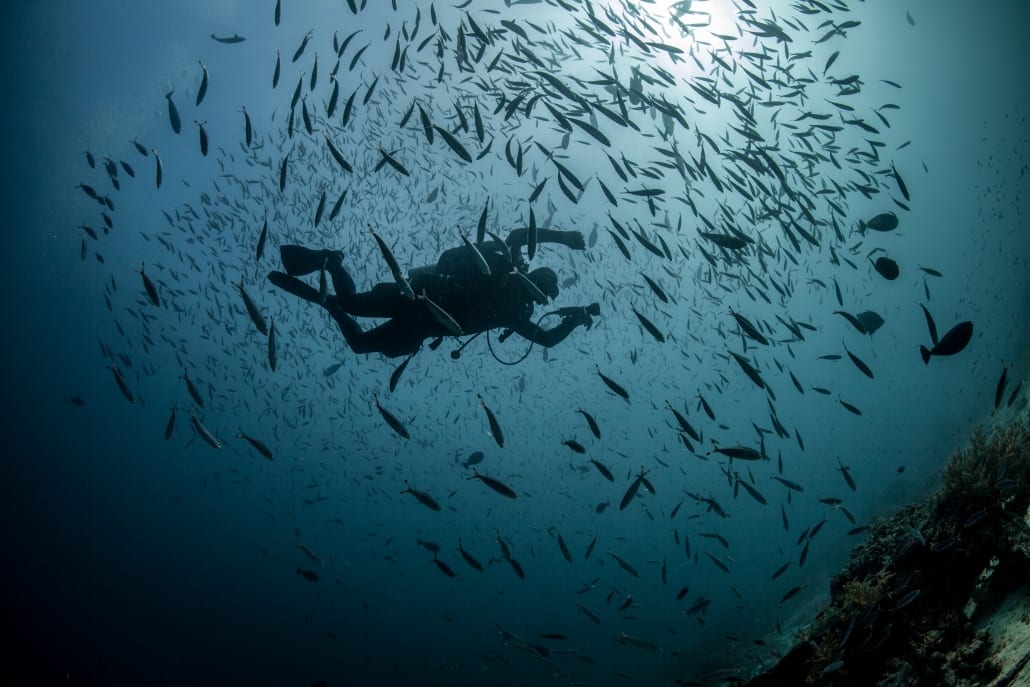
- Scientific Name: Katsuwonus Pelamis
- Method of Catch: Purse Seine
- Where caught: Western Pacific Ocean (FAO 71)
- Brand: Century Tuna, 555 Tuna
- Products: Flaked Light, Chunk Light , Solid Light
- Scientific Name: Thunnus Albacares
- Method of Catch: Purse Seine / Handline
- Where caught: Philippines (FAO 71)
- Brand: Century Tuna
- Product: Chunks in Olive Oil
- Scientific Name: Sardinella Lemura
- Method of Catch: Purse Seine
- Where caught: South of Philippines (FAO 71)
- Brand: 555 Sardines
- Products: In Tomato Sauce, In Natural Oil
- Scientific Name: Scomber Australasicus, Scomber Japonicus
- Method of Catch: Purse Seine
- Where caught: New Zealand (FAO 81), Japan (FAO 61)
- Brand: 555 Mackerel
- Products: In Tomato Sauce, In Natural Oil
- Catch Method: Farmed/Marine Cultured
- Where caught: South of Philippines (FAO 71)
- Brand: Century Bangus
- Product: In Oil
ISSF
CNPF is a founding member of the tuna sustainability organization International Seafood Sustainability Foundation (ISSF) and sits on the ISSF board through General Tuna Corporation, its wholly-owned subsidiary. The ISSF engages MRAG Americas to conduct annual audits, evaluating strict compliance with all its conservation measures and commitments made since 2015. View ISSF’s latest Annual Report here to learn more about our shared commitment to responsible seafood sourcing: https://www.iss-foundation.org/about-issf/our-story/annual-report/
ISSF Feature
ISSF Final Compliance Reports
Audit Results as of March 2023
ISSF CM 9.1 "Public Policy on Social and Labor Standards”
ISSF 2.5 Compliance
ISSF 1.3
ISSF Feature
To shape RFMO discussion and decision-making, ISSF’s science and advocacy experts have outlined their concerns and advice below. Our position statements — which we disseminate ahead of RFMO annual meetings and special sessions — also explore these priority topics.
ISSF Final Compliance Reports
ISSF Final Compliance Report as of June 2025 for activities from Q1 to Q4 2024
ISSF Final Compliance Report as of June 2024 for activities from Q4 2022 to Q4 2023
ISSF Final Compliance Report as of March 2023 for activities from Q4 2021 to Q3 2022
ISSF Updated Compliance Report as of June 2022 for activities from Q4 2020 to Q3 2021
ISSF Final Compliance Report as of March 2021 for activities in 2020
ISSF Final Compliance Report as of March 2020 for activities in 2019
ISSF Final Compliance Report as of March 2019 for activities in 2018
ISSF Final Compliance Report as of March 2018 for activities in 2017
ISSF Final Compliance Report as of March 2017 for activities in 2016
ISSF Final Compliance Report as of April 2016 for activities in 2015
Audit Results as of March 2023
Final Compliance Report (as of 13th March 2023, for activities from Q4 2021 to Q3 2022)
Conservation Measure | Current Report |
1.1 RFMO Authorized Vessel Record | OK |
1.2 RFMO Participation | OK |
1.3 IOTC Yellowfin Tuna Rebuilding | N/A |
2.1 Product Traceability | OK |
2.2 Quarterly Data Submission to RFMO | OK |
2.3 Product Labelling by Species and Area of Capture | MINOR |
2.4 Supply Chain Transparency, Audit, Reporting and Purchase Requirements | OK |
3.1(a) Shark Finning Policy | OK |
3.1(b) Prohibition of Transactions with Shark Finning Vessels | OK |
3.1(c) Prohibition of Transactions with Companies without a Public Policy | OK |
3.2 Large-scale Pelagic Driftnets | OK |
3.3 Full Retention of tunas | OK |
3.4 Skippers Best Practices | OK |
3.5 Transactions w/ Vessels that use Only Non-Entangling FADs | OK |
3.6 Transactions with Vessels Implementing Best Practices for Sharks & Sea Turtles | N/A |
3.7 Transactions with Vessels or Companies with Vessel-Based FAD Management Policies | OK |
4.1 UVI-IMO | OK |
4.2 Purse Seine Unique Vessel Identifiers | OK |
4.3(a) Observer Coverage | OK |
4.4(a) Transshipment | OK |
4.4(c) Transshipment at Sea – Observer Coverage | N/A |
5.1 IUU Fishing | OK |
5.2 IUU Product Response | OK |
6.1 Transaction Ban for LPS vessels not Actively Fishing for Tuna on Dec. 31, 2012 | OK |
6.2(e) Purchases from PS Vessels in Fleets with Other Vessels not in Compliance w/ CMs 6.1 and 6.2(a) | OK |
7.1(a) Registration of Controlled Vessels (purse seine and supply & tender) | N/A |
7.1(b) Registration of Controlled Vessels (longline) | N/A |
7.2 Threshold Requirement for PVR Listing | OK |
7.3 Purchases from PVR Vessels (large Purse Seine) | OK |
7.4 Supply and Tender Vessels | N/A |
7.5 Purchases from PVR Vessels (longline) | N/A |
8.1 Exemption for Very Small Purse Seine Vessels | N/A |
9.1 Public Policy on Social and Labor Standards | OK |
ISSF CM 9.1 "Public Policy on Social and Labor Standards”
Our commitment to support ISSF Conservation Measure 9.1 (Public Policy on Social and Labor Standards):
Public Policy on Social and Labor Standards
Business Ethics, Labor Code of Conduct, and Human Rights Policy
ISSF 2.5 Compliance
GENERAL TUNA CORPORATION
Compliance to ISSF Conservation Measures
In compliance to ISSF CM 2.5, General Tuna Corporation is presenting its Fishery Sources and Supplier Sources, for the period of January 2024 to Dec 2024:
Compliance to ISSF Conservation Measures
In compliance to ISSF CM 2.5, General Tuna Corporation is presenting its Fishery Sources and Supplier Sources, for the period of January 2024 to Dec 2024:
| FISHERY SOURCE CATEGORIES | |
| Fisheries certified by the MSC | 64.12% |
| Fisheries that have entered full assessment for MSC certification | 0.00% |
| Fisheries in the MSC Improvement program | 0.00% |
| Comprehensive FIPs that have been publicly listed and have achieved progress within at least the past 24 months; or are in their initial year of listing | 3.81% |
| Comprehensive FIPs that have been publicly listed but have not achieved progress in the prior 24 months | 0.00% |
| None of the above | 32.07% |
| SUPPLIER SOURCE CATEGORIES | |
| ISSF Participating Companies | 4.39% |
| Data Check Companies | 0.00% |
| Direct from Vessels | 45.10% |
| None of the above | 50.51% |
FISHERY SOURCE CATEGORIES:
Fishery Source Categories: A) A roadmap and timeline to increase the percentage of their purchases from fisheries certified by the MSC
Q2 2025 – Q4 2025
Assessment and Supplier Engagement
- Assess procurement sources and MSC-certified tuna.
- Engage with suppliers to ensure MSC compliance.
- Develop an MSC sourcing plan.
- Train procurement and quality teams on MSC standards.
Q1 2026 – Q4 2026
Scaling Up and Supplier Transition
- Strengthen relationships with MSC-certified suppliers.
- Ensure compliance with MSC Chain of Custody certification.
- Increase the percentage of MSC-certified seafood purchases.
- Evaluate and phase out non-MSC-certified sources.
Q1 2027 – Q4 2027
Continuous Improvement and Expansion
- Explore and integrate new MSC-certified fisheries.
- Refine procurement strategies to ensure sustainable sourcing.
- Monitor and audit supplier commitments to MSC standards.
Fishery Source Categories: B) A roadmap and timeline to decrease the percentage of their purchases from Comprehensive FIPs that have been publicly listed but have not achieved progress in more than 24 months
Q2 2025 – Q4 2026
Reducing Dependence on Stagnant FIPs
- Review current suppliers under stagnant Comprehensive FIPs.
- Engage with suppliers to encourage progress in FIP action plans.
- Phase out stagnant FIPs with no progress.
- Encourage participation in active improvement programs.
Q1 2027 – Q4 2027
Transition to Sustainable Sources
- Shift procurement towards actively progressing FIPs and MSC-certified fisheries.
- Ensure full compliance with traceability and sustainability standards.
- Reduce reliance on non-progressing FIPs by 2027.
Fishery Source Categories: C) A roadmap and timeline to decrease the percentage of their purchase from the “none of the above” category
Q2 2025 – Q4 2026
Reducing “None of the Above” Category
- Identify and review all suppliers in the “None of the Above” category.
- Engage suppliers to transition towards sustainability commitments.
- Encourage adoption of MSC certification or active FIP participation.
Q1 2027 – Q4 2027
Transition to Sustainable Sources
- Increase procurement from verified sustainable sources.
- Monitor and evaluate supplier progress toward sustainability goals.
- Discontinue purchases from suppliers with no progress by 2027.
SUPPLIER SOURCE CATEGORIES
A) A roadmap and timeline to decrease the percentage of their purchase from the “none of the above” category
Q2 2025 – Q4 2025
Assessment and Supplier Engagement
- Assess current procurement sources.
- Engage more business directly with fishing companies.
- Develop a sustainable sourcing plan aligned with supply needs and cost factors.
- Encourage “None of the Above” category to consider being an ISSA member.
Q1 2026 – Q4 2026
Scaling Up and Supplier Transition
- Strengthen relationships with fishing companies.
- Ensure that fishing companies are aligned in getting their fish compliance with Active FIP and MSC Chain of Custody (CoC) certification for traceability.
- Increase direct volume purchases from fishing companies.
- Continue to encourage “None of the Above” category to consider being an ISSA member.
Q1 2027 – Q4 2027
Continuous Improvement and Expansion
- Monitor and refine supplier relationships for long-term partnerships by incorporating sustainability aspects in their respective businesses.
ISSF 1.3
General Tuna Corporation endorses ISSF CM 1.3, which advocates for the reduction of Yellowfin Tuna purchases from the Indian Ocean. In the period spanning 2017 to 2019, the corporation procured less than 1,000 metric tons of Yellowfin Tuna from the Indian Ocean.
For fish, our traceability system is audited by the Bureau of Fisheries and Aquatic Resources and other international audit firms such as:





























